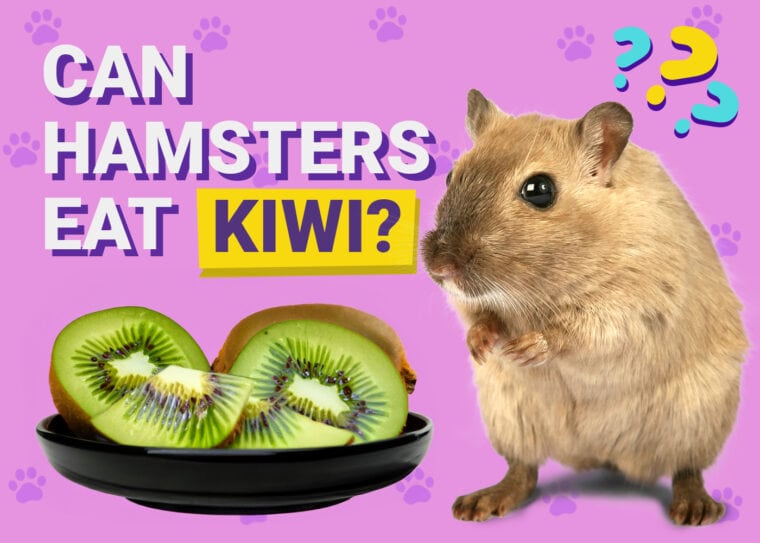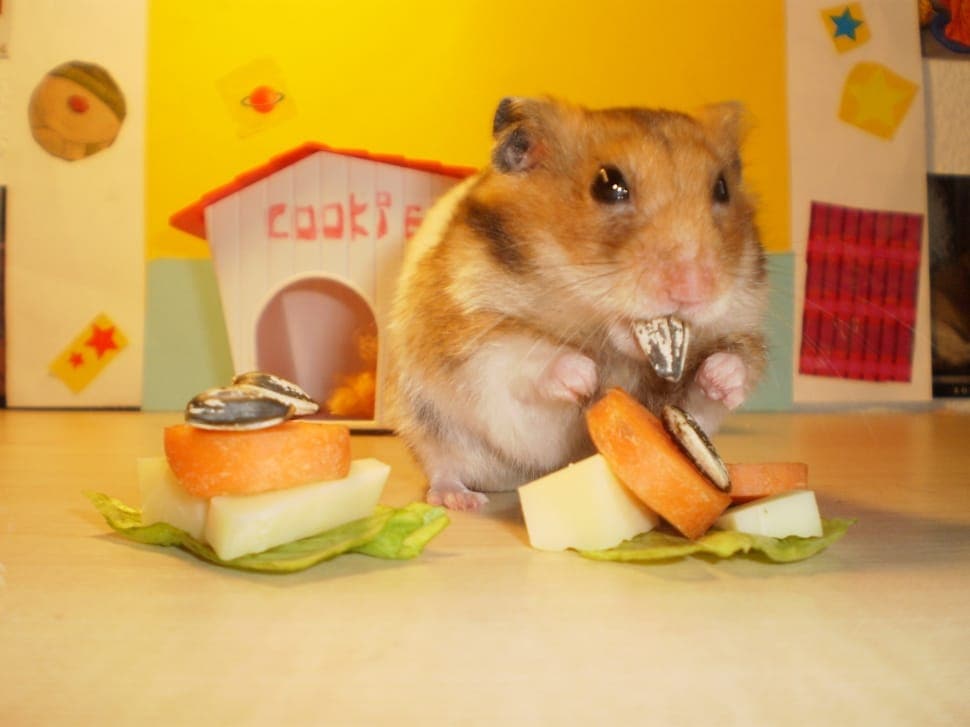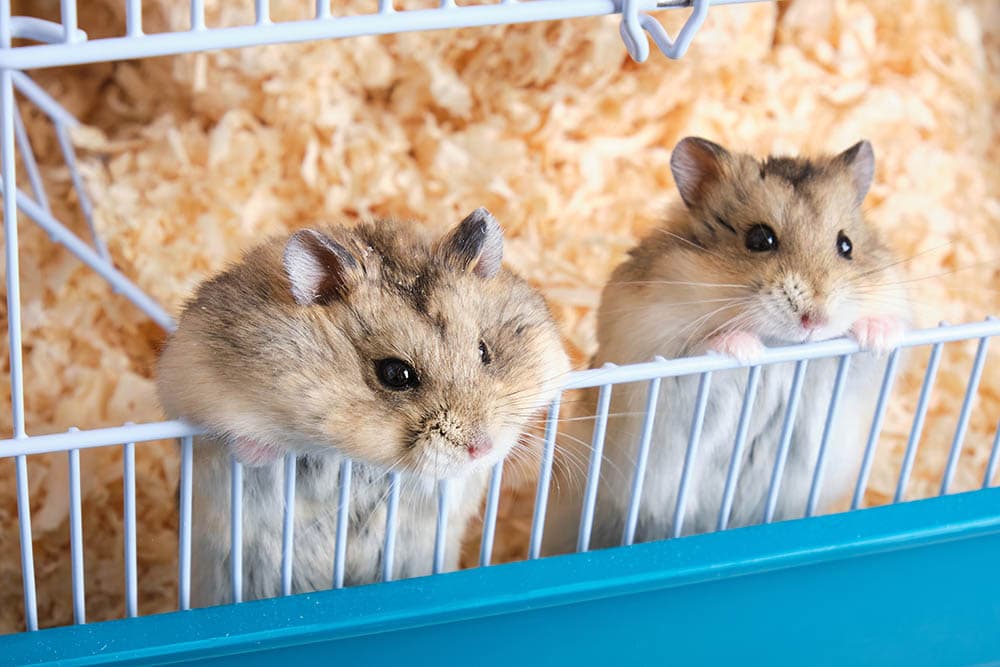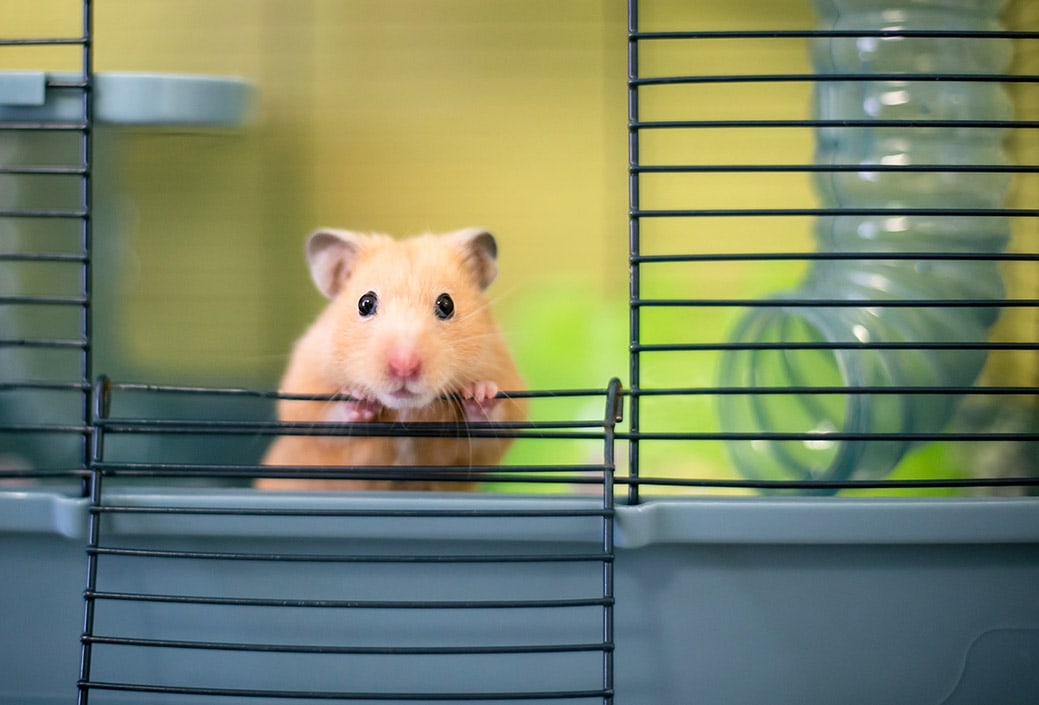
Sweet, good-natured hamsters are omnivorous creatures, eating both plants and insects in the wild. Domesticated hamsters eat pellet food that makes up the bulk of their diet. However, they should also be offered healthy fruits and veggies. Is kiwi one of the hamster-safe fruits on the list? Yes, hamsters can eat kiwi, sometimes.
Even though kiwis are a safe fruit for hamsters, there are some things you should know. In this article, we’ll explore the nutritional benefits and risks of feeding your hamster kiwi.
Is Kiwi Safe for Hamsters?
Your tiny guy or gal will be able to enjoy lots of fresh fruits and vegetables. They have very versatile palates. So, while it’s always best to make sure food is safe—they have a pretty extensive list of edible choices.
Kiwi is on that list. Hamsters can indulge in this moisture-rich, soft fruit. You just have to make sure that you give them hamster-sized portions—and don’t overdo it1.

Nutritional Facts of Kiwi
Health Benefits of Kiwi for Hamsters
Kiwis are a fruit that offers some nutritional quality to hamster diets. If your little one takes a liking to the juicy green fruit, there are some dietary upsides. The main benefit of kiwi fruit is its high moisture content, and the plethora of micronutrients it contains in the form of minerals.
Though kiwi is high in vitamin C, it is important to note that this particular vitamin isn’t essential for hamsters, and in experiments where hamsters were offered diets supplemented with vitamin C, they did show any significant improvement in terms of growth, immunity, or reproductive performance.
However, vitamin C might be beneficial for hamsters that are stressed, ill, or unwell because in such a circumstance, supplemental vitamin C is definitely going to be beneficial for your hamster’s health.
Risks of Too Much Kiwi for Hamsters
Even though kiwi is super nutritious, too much can have not-so-nice side effects.
Oxalates
Kiwi is exceptionally high in oxalates, also sometimes referred to as oxalic acid. A single kiwi fruit can contain up to 29 mg of oxalates.
In hamsters, oxalates can bind to calcium within the body and lead to bladder stones. This is a painful condition which requires medical intervention. Large stones can obstruct the flow of urine in your hamster, which is a life threatening condition and should be considered an emergency.

High Water
The high amount of water in kiwi can lead to diarrhea in hamsters. If your hamster has diarrhea in unsanitary conditions, it can cause a potentially deadly infection called wet tail.
If your hamster has diarrhea, you should not attempt to rehydrate them with plain water, as this will make things worse. You should seek a product made specifically for rehydrating hamsters, available from your pet store or veterinarian.
Diarrhea in hamsters should not be taken lightly, and if you notice diarrhea in your hamster, you should seek prompt professional care for them.
Sugars
The high amount of sugar in kiwi can lead to a spike in blood glucose levels, and can predispose your hamster to undesired calories, which can lead to weight gain. High amounts of sugar can also lead to dental issues in hamsters.
It is important to ensure to serve appropriate portions of fruit to your hamster.
Hoarding
Hamsters are instinctive hoarders. They like to stuff food in their very large cheeks to transport it back to their favorite hiding places or den to consume later. Wild hamsters instinctively do this because the ability to hoard food lets them eat in peace without disturbances from predators or other threats. Pet hamsters may also demonstrate this habit.
Your hamster may take fresh kiwi to their favorite hoarding spot. It is important to thoroughly check these spots to remove food items that spoil quickly once left outside. Rotting food in your hamster’s cage can lead to health issues for your pet.

Cheek Pouch Issues
Hamster cheek pouches are large, but notably they don’t produce any saliva. Foods high in moisture can sometimes get trapped in their cheek pouches, leading to impaction and disease. This scenario requires prompt medical care.
How Much Kiwi Can Hamsters Eat?
Hamsters vary in size, so you should base the portions on the type you have. A good rule of thumb is to give your hamster a chunk the size of their paw. It might seem like a small amount, but that’s equivalent to us eating something the size of a potato—pretty filling, right?
Make sure that the kiwi is fully ripened and peeled first. You can offer a small piece of paw-sized kiwi once or, at most, twice a week. If your hamster gets into a routine of eating kiwi, you might see that they expect it on snack days. It could become a favorite in no time.

Be Careful of a Few Things
Ripe kiwi is fine to feed your hamsters, but that doesn’t count for all kiwi-flavored products.
Here are some no-nos on the matter:
Hamsters should never eat any food that has added sugar, artificial flavors, colors, or preservatives. Their bodies can’t break down these things.
Final Thoughts
So, now you can peel a fuzzy kiwi to give to your hamster. They are perfectly safe, providing some benefits to them. Just remember, no matter how quickly they gobble it up, don’t serve too much at once—or over time.
You can combine kiwi with several fruits and veggies to give your hamster a well-rounded, nutrient-rich diet. After all, you want your hamster to enjoy mealtime and stay healthy all in one swoop.
Featured Image Credit: Photo Mix, Pixabay










